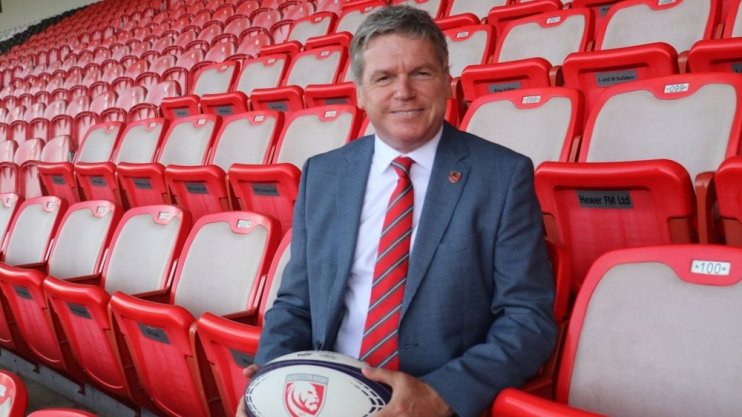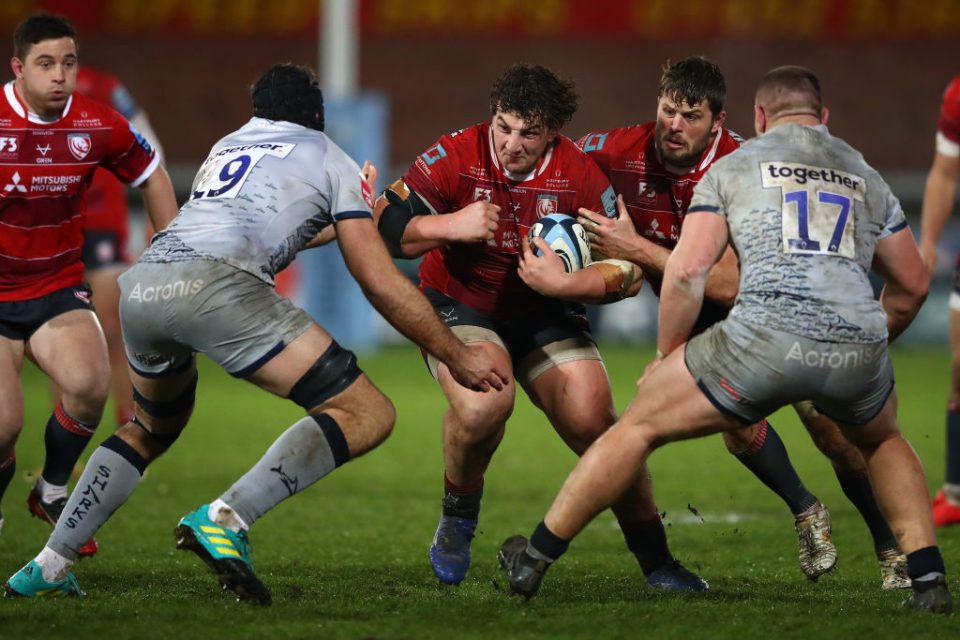Gloucester Rugby CEO Lance Bradley: Scrap relegation this season, it’s not right and would be catastrophic for any Premiership club

“It would be catastrophic,” says Gloucester Rugby chief executive Lance Bradley, matter-of-factly, about the prospect of relegation.
Gloucester sit bottom of the Premiership table after six rounds of fixtures, raising the spectre of another swingeing financial blow as all clubs count the cost of the pandemic. It hardly bears thinking about – and Bradley doesn’t intend to.
“We’re not going to get relegated. We’re not going to finish bottom of the table. And I don’t mean that to sound complacent, because we’re not.
“But the way that we are playing and the improvements that we have made, the players that we’ve got coming back from injury, we’re not contemplating relegation.”
Bradley, who took up his role in September 2019 after three decades in the motor industry, says Gloucester have made measurable improvements in some facets of play.
A greater emphasis on using academy players has inevitably led to a degree of fluctuation in form, he adds, while their last three games have been against teams in the top four.
“Nobody wants to be bottom of the league, but we’re actually very happy with what’s happening on the playing side.”
On scrapping relegation this season
Talk of relegation for Gloucester may, of course, be academic. And not just because they may be better than recent results suggest.
Premiership clubs remain in talks about overhauling promotion and relegation rules, potentially from this season.
Options discussed include ringfencing the top division, and expanding it from 12 to 13 or 14 teams.
Bradley advocates scrapping relegation for this season on the basis that so many matches have been cancelled, meaning points are awarded by a panel based on which team was responsible.
“Nobody could have foreseen quite how many games were going to be cancelled this season,” he says.
“The chance of a team, whoever it might be, getting relegated because they happen to stay fit and healthy – that just doesn’t feel right.
“The consequences of getting relegated and having another huge hit to your income straight after that would be catastrophic.
“And it would be catastrophic for pretty much any club in the league. That isn’t really what it’s about.
“We’re looking at how to develop the game and broaden its reach. Having one of the Premiership clubs go out of business is completely counterintuitive to that.”
Promoted teams must pass £5m test
Bradley is in favour of keeping promotion, provided the team coming up have adequate facilities and can demonstrate that they will be competitive.
“If there’s another club that’s capable of competing in the Premiership, then it would be great to have them up here,” he says.
“What won’t work is to have a team come up that’s completely uncompetitive. A couple of seasons ago London Welsh lost every single game. Who did that benefit?
“People talk about Ealing [Trailfinders] and Cornish Pirates and one or two other teams. I’ve been to watch Championship games, and there’s some great rugby there. But it’s a world away from Premiership rugby.
“People talk about Exeter, forgetting that their overnight success has taken them 25 years. It’s not an easy thing to do, and that’s the exception rather than the rule.”
Bradley suggests any promoted team should be able to afford a wage bill in line with the league’s £5m salary cap.
“If a club were to come up and spend £3m, they’d get beaten every week. That’s the simple fact of it,” he says.
“So if they’re unable to afford £5m a year on salaries, there’s really no chance of them being competitive.”
Turning Gloucester’s finances around
Fine-tuning Gloucester’s finances has been a priority for Bradley since his arrival from Mitsubishi Motors UK, where he was managing director.
Six months into the role, sport ground to a halt. But, he says, that time allowed the club to make changes more quickly than they otherwise might.
Those changes, including a first increase in season ticket prices for five years, have contributed to a £1.5m swing in the right direction from a £2.5m loss in 2018-19.
“My background is in the automotive industry, where if you do really well, you might make a one or two per cent return on sales,” he says.

“If you don’t do everything pretty close to perfect, you lose money. And so you need to measure everything, have processes for everything, you need daily reports.
“When I arrived at Gloucester rugby that wasn’t really the case. Implementing those kind of changes was essential, because if you can introduce those controls to another industry, the benefits will be the same.”
How car industry shaped Bradley
Bradley credits his experience at Mitsubishi, which he joined in 2009 shortly after the last financial crisis hit, with preparing him well for today’s challenges.
Facing three years without any new products and limited consumer demand, the company resolved to focus on honing all of its processes.
“When we came out of it, the first car that we launched was the Outlander Plug-In Hybrid, which took the market by storm,” he says.
“It had a disproportionately dramatic impact. And part of that was because we were so well prepared for it.
“At times of difficulty, the ones who win are the ones who do loads of stuff during the difficult time rather than wait and see what happens.
“We haven’t wasted any of our time. We have come out of it stronger than we went in.”
Why CVC is good news for rugby
Bradley is firmly in favour of CVC Capital Partners’ investment in Premiership Rugby and the positive potential impact of private equity in sport.
“There’s some outside expertise and strategic planning brought to the table that I think most people would see wasn’t necessarily there before,” he says.
“Some of the plans that CVC are helping to develop are fantastic. I’ve been involved in a couple of them, and they’re really going to help grow the game.”
Bradley is hopeful that CVC’s involvement in the game at domestic and international level can help mend a disconnect between the two.
“A lot of people say, ‘I’m a big rugby fan, I watch the Six Nations on TV every year’,” he says.
“When you say to them, ‘So have you ever thought about going along to your local club?’ often it’s never crossed their mind. That’s a shame.
“It’s hard to get tickets to watch England at Twickenham. And if you can, it’s not a cheap day out.
“But you could go and watch a Premiership club for a fraction of that money and see the same kind of players.
“So if we can get that message across to people, that’s a huge opportunity to grow the game.”
